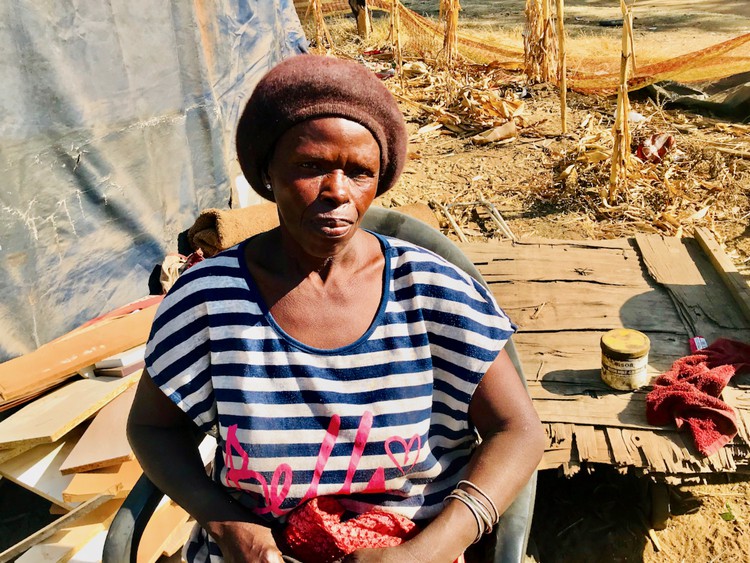A lifetime without an ID document
Thoko Nzimande is 63 and she has never had an identity document
“I am a South African. Both my parents were South Africans. But l have never had an ID. As a result, my life has not been easy,” says 63-year-old Thoko Nzimande.
She was born in the Transkei. Her parents separated and her mother died when she was very young.
When she was 20, she decided to go to the city to look for a job. At first she settled in Durban, but for years she struggled to find work. Then she lived on a farm for a few years. Later she was offered a free lift to Gauteng. She lived in an informal settlement in Duduza and later moved to Mugongo informal settlement in Brakpan, where she now lives in a shack.
She says in more than 40 years she has never raised enough money for a bus ticket to go home. She has lost touch with her family and does not know when she last spoke to them, or if any of them are still alive.
“At first I thought l would manage without an ID, but with time life became even harder, as no one would employ me without one,” she says.
Whenever she went to Home Affairs she was told to go and apply for an ID in her hometown.
Every day she sets out at 6am to collect scrap in and around Brakpan. She collects plastic containers and other recyclable material. She brings the materil home at around noon and spends the rest of the day sorting it.
Once a week she and other waste pickers hire a truck to take the material to a dealer in Brakpan.
“I make so little l can barely survive. I should be earning a pension but that is impossible without an ID. I didn’t even manage to register for an RDP house,” she says.
“My health is slowly failing me. I am only grateful to have the small shack that l live in,” she says,
Support independent journalism
Donate using Payfast

Don't miss out on the latest news
We respect your privacy, and promise we won't spam you.
Next: MyCiTi suspension on N2 hits commuters hard
Previous: South African players on international draughts stage
© 2019 GroundUp.
This article is licensed under a Creative Commons Attribution-NoDerivatives 4.0 International License.
You may republish this article, so long as you credit the authors and GroundUp, and do not change the text. Please include a link back to the original article.

